PHC in the News
A Turning Point for Primary Health Care Measurement Around the World: PHCPI Welcomes New Framework from Partners at WHO & UNICEF
This week marks an important milestone for advocates, policymakers and practitioners working to improve primary health care: the launch of the first-ever globally normative and endorsed Primary health care measurement framework and indicators, jointly developed by our partners at the World Health Organization and UNICEF. All of us at the Primary Health Care Performance Initiative are thrilled to welcome this landmark achievement, and are proud to have played a part.
This framework could not come at a more important moment. COVID-19 has repeatedly exposed and exacerbated weaknesses in the foundations of health systems around the world, reminding leaders and citizens that action on primary health care is long overdue.
We know that when it is strong, primary health care acts as the backbone of epidemic response, from ensuring people get tested and vaccinated, to supporting contact tracing and information sharing, to helping people navigate short- and long-term symptoms of this terrible disease. By maintaining other routine and essential health services in a crisis, strong primary health care can prevent excess morbidity and deaths too. For example, during the 2014-2016 Ebola outbreak in West Africa, most deaths were not a result of the virus itself but rather the breakdown of primary health care and loss of essential health care services. And as we enter the third year of COVID, the level of disruption to essential services worldwide is similar to what was reported in Q3 2020 and Q1 2021.
While those who have long worked on the frontlines in delivering primary health care services have well understood its value and what it takes to achieve resilient, quality health care for all, there has been little in the way of global consensus or guidance to back them up. And in this time of crisis, while health workers have cried out for the support they need, many leaders have still felt they do not have enough (or the right) information to confidently pinpoint where their health systems are strong or weak, especially at the primary health care level.
The new WHO-UNICEF measurement framework is essential to closing these gaps. Even as global commitments to primary health care extend back decades – from the historic 1978 Alma-Ata Declaration in 1978 to the Astana Declaration 40 years later – this is the first time there has been a truly global consensus on how to define, measure and track progress across the many building blocks of primary health care. With this one framework, we are opening doors to a common language, more shared tools, and more harmonized investments.
It took years of hard work, advocacy and partnership to reach this moment. Since PHCPI began seven years ago, our core partners have been at the forefront of innovation in the PHC measurement space, working with more than 40 countries along the way.
Together, we explored challenges in PHC financing, capacity issues like governance and leadership; the details of service delivery and quality care, and how these elements work in tandem to promote equity and resilience. We developed an initial PHCPI conceptual framework with an emphasis on bringing light to this “black box” of service delivery, and debuted the Vital Signs Profile, an innovative snapshot of strengths and weaknesses in primary health care. And just last year, we published a comprehensive digital report outlining invaluable insights from the Vital Signs of 23 countries to date.
Lessons from these early inroads enabled all PHCPI partners to contribute to the development of the global WHO-UNICEF framework, drawing heavily on the expertise of national and sub-national leaders who are trailblazers in the field of PHC improvement.
In preparation for the launch, PHCPI has spent the last year laying the groundwork for new and revised tools that can help countries translate this framework to action. This suite of resources will include a second generation Vital Signs Profile that is aligned fully with the new framework and indicators.
Ultimately, the launch of the Primary Health Care Measurement Framework and Indicators marks an exciting new chapter for all policymakers, practitioners and advocates working to build health systems that can meet the needs of all people, everywhere.
As a family doctor, I fully believe that access to comprehensive, quality health care in your community – no matter who you are, where you live, or how much money you have – can make a significant difference over the course of our lives, from cradle to grave, and how long that takes. We like to say that primary health care is ‘primary’ for a reason – and we remain more committed and motivated than ever to ensure that a PHC approach paves the way to a healthier, safer, fairer world for all. Let’s get to work.
Stay tuned for more exciting updates in the months to come.
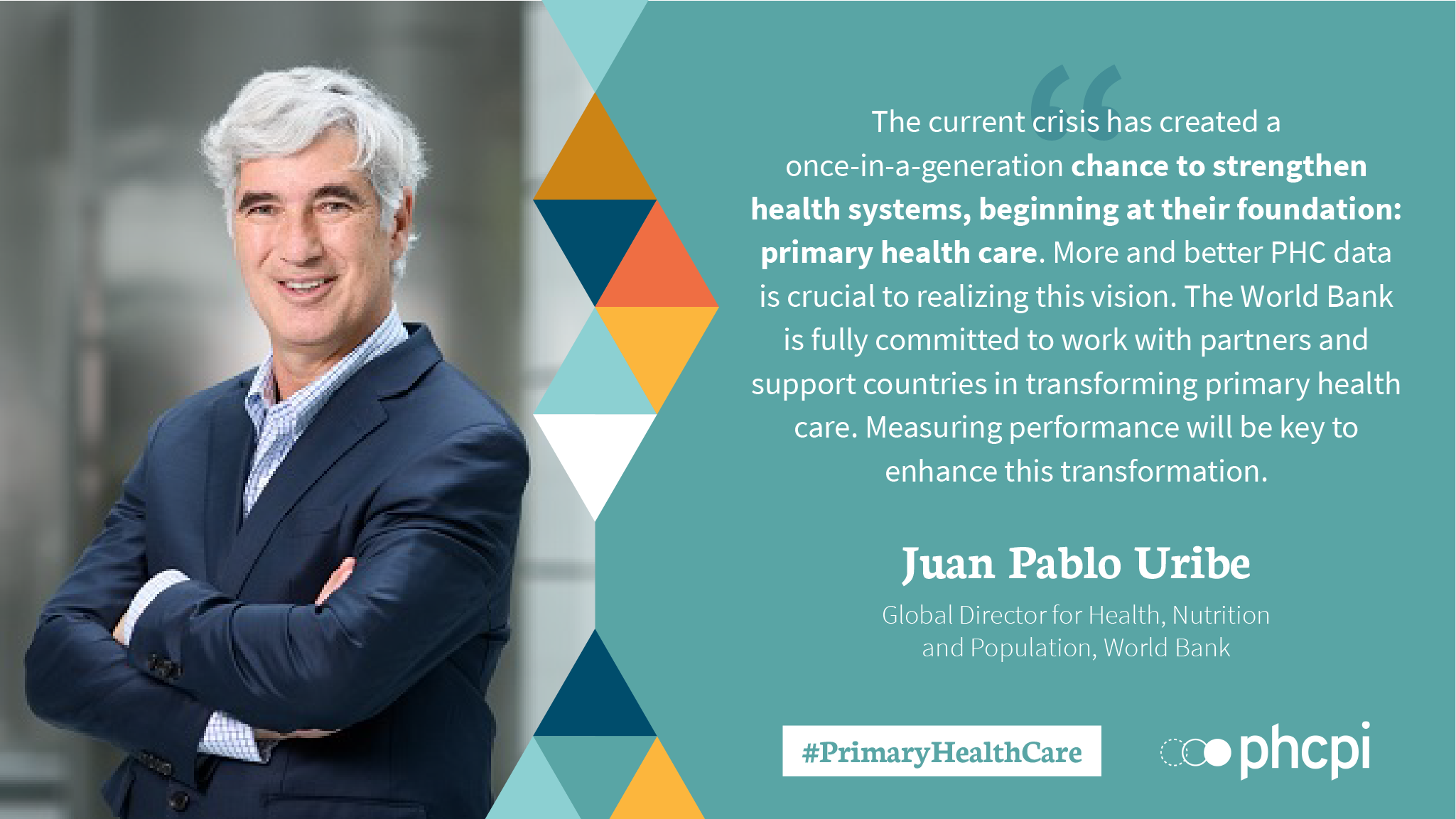 Dr. Juan Pablo Uribe
Dr. Juan Pablo Uribe
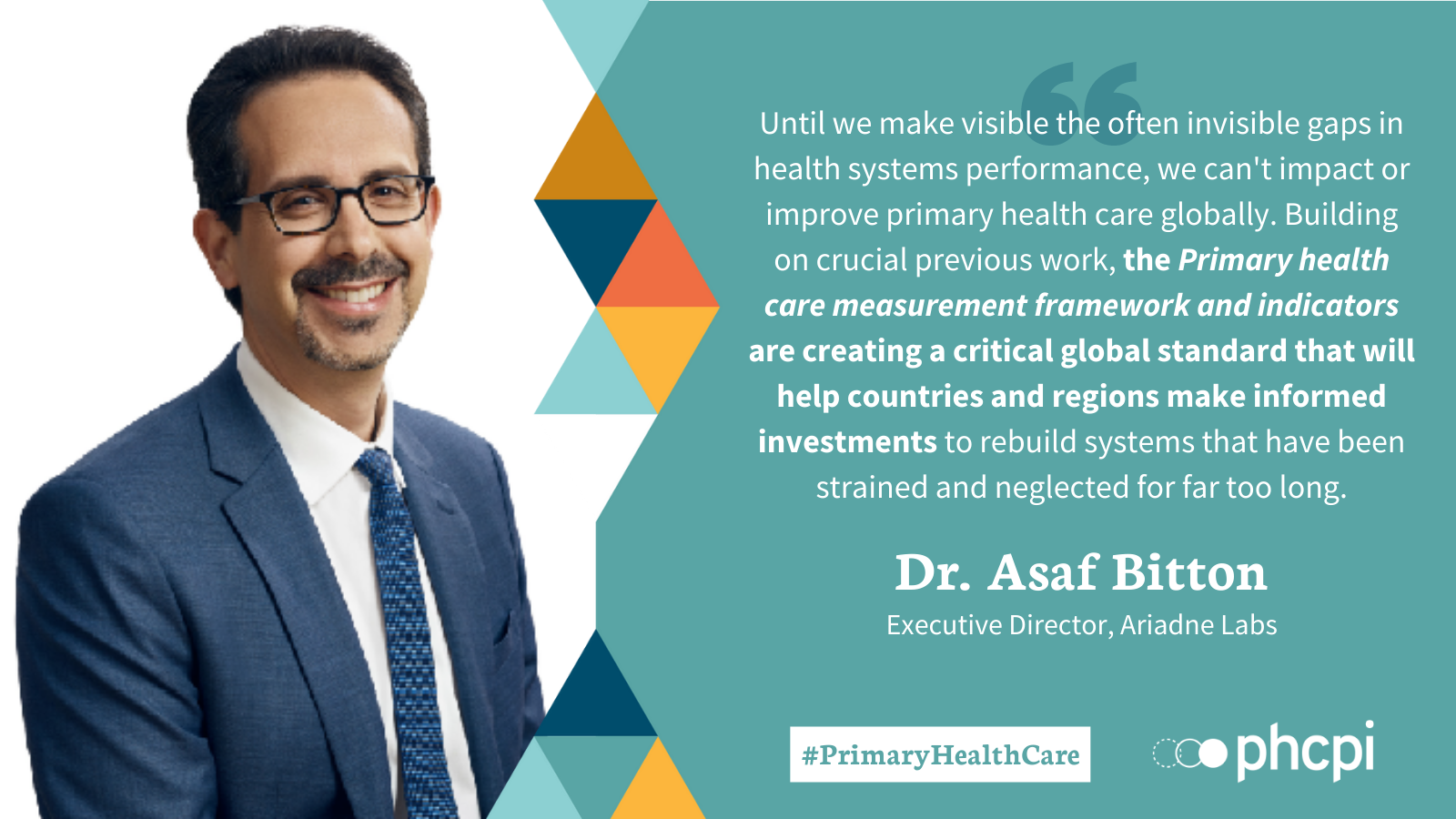 Dr. Asaf Bitton
Dr. Asaf Bitton
 Dr. Suraya Dalil
Dr. Suraya Dalil
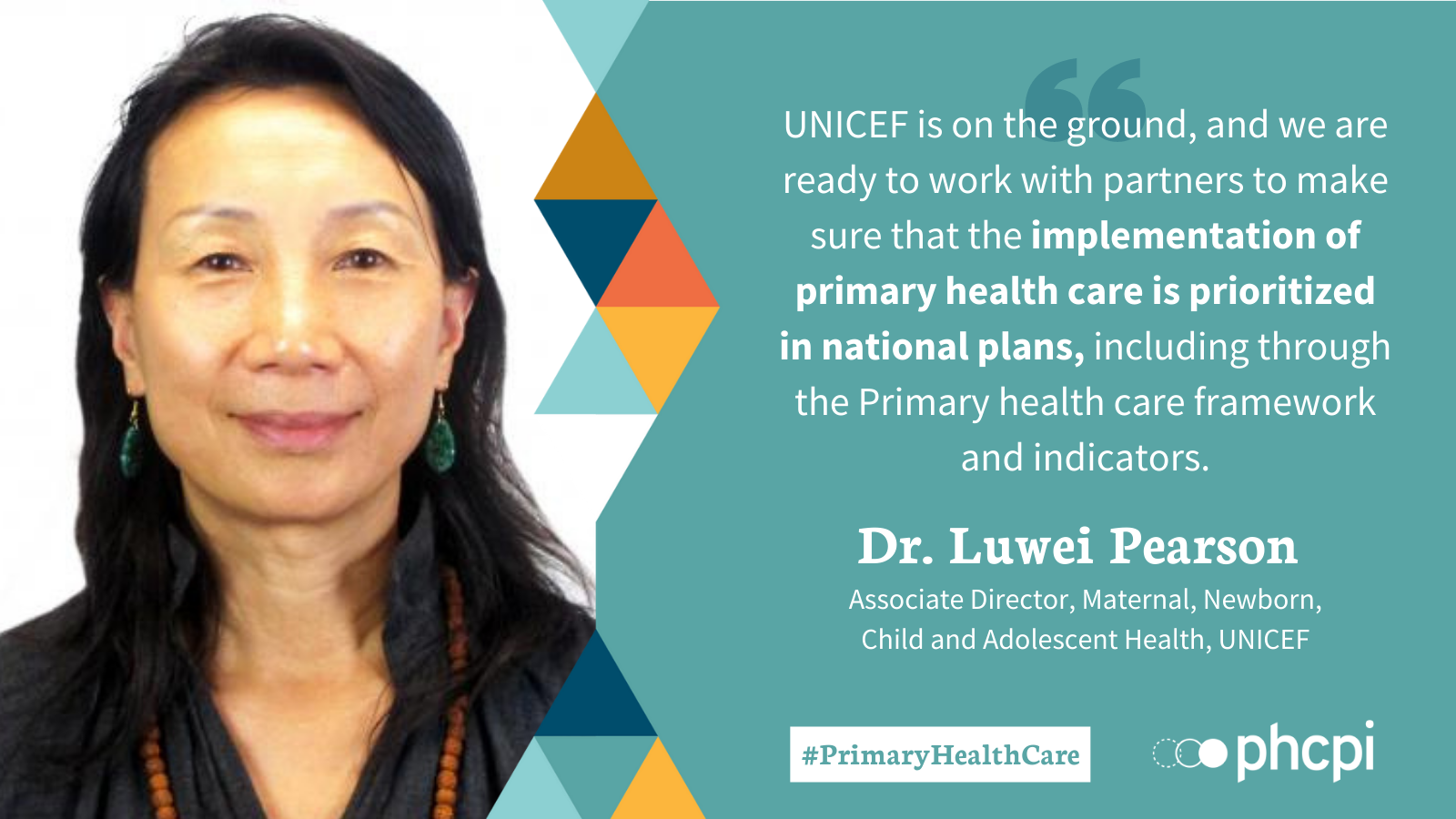 Dr. Luwei Pearson
Dr. Luwei Pearson
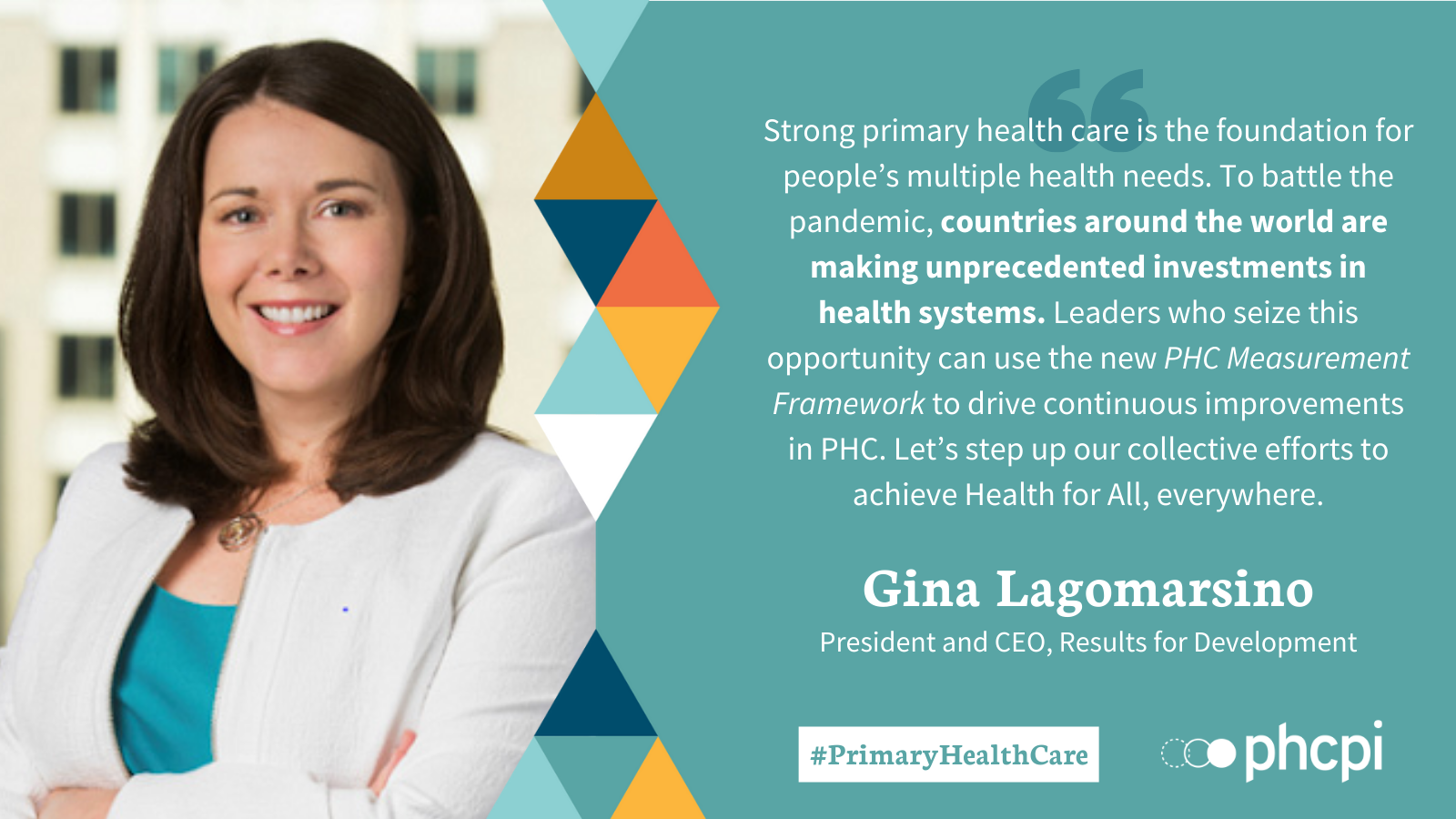 Gina Lagomarsino
Gina Lagomarsino
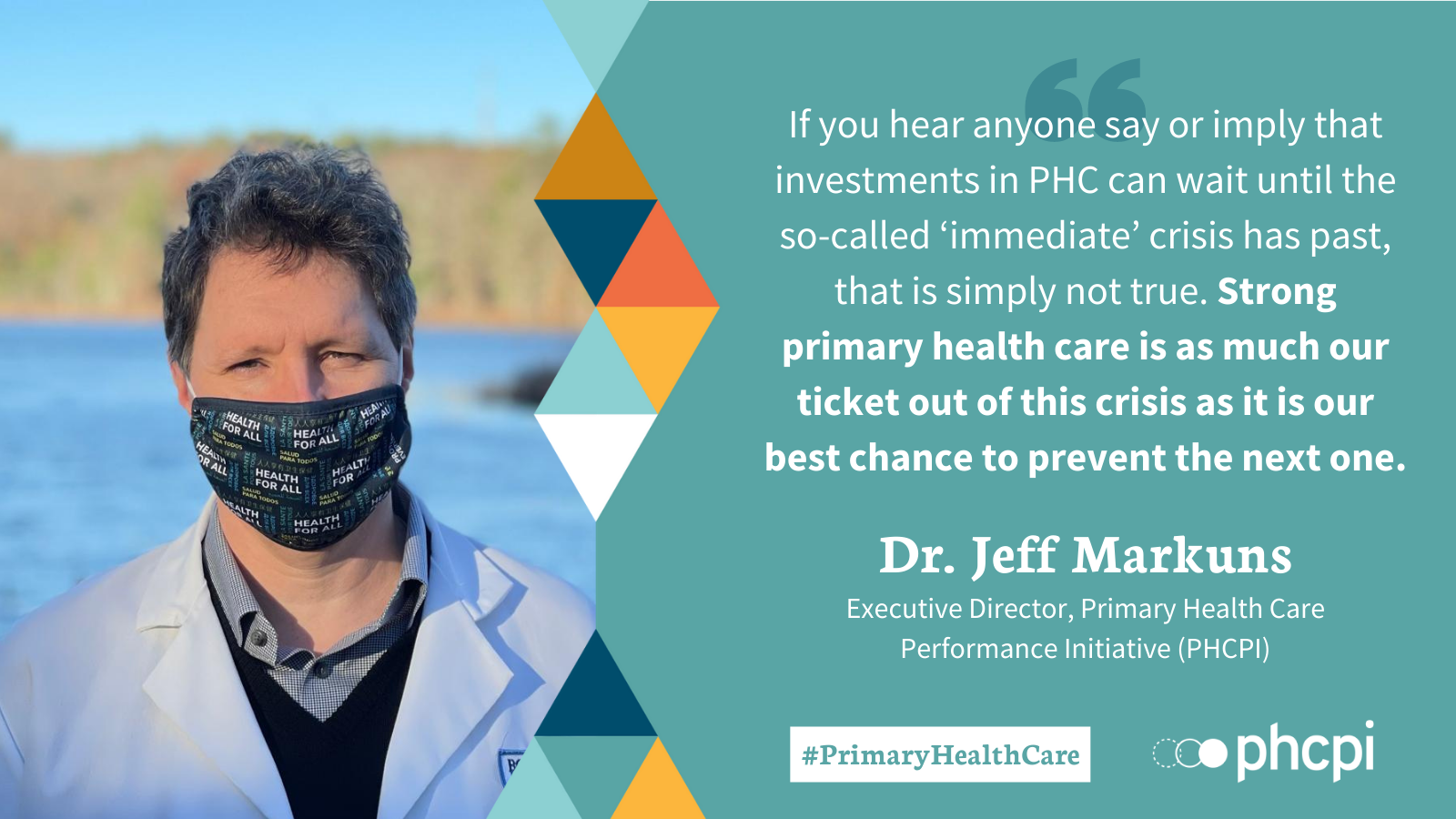 Dr. Jeff Markuns, Executive Director, PHCPI
Dr. Jeff Markuns, Executive Director, PHCPI
